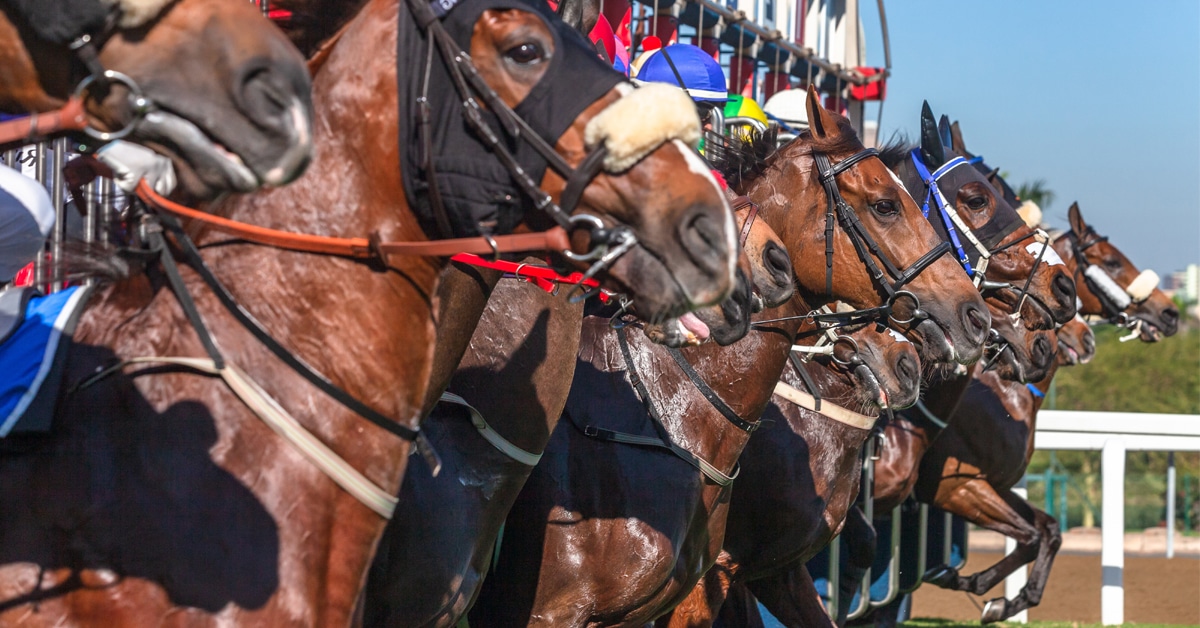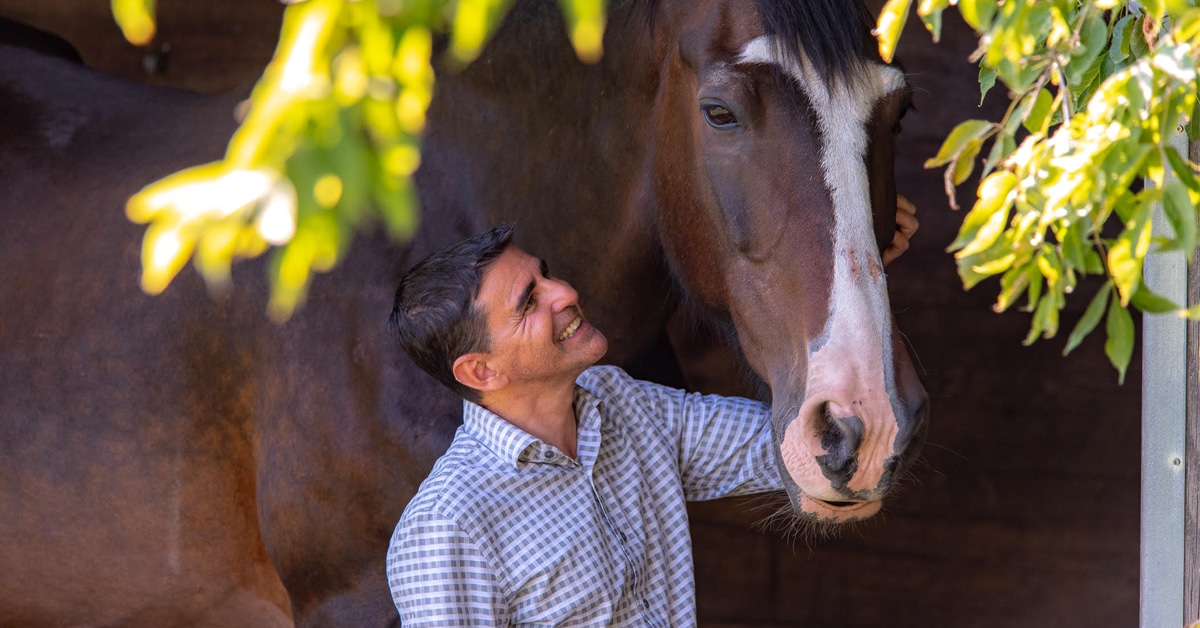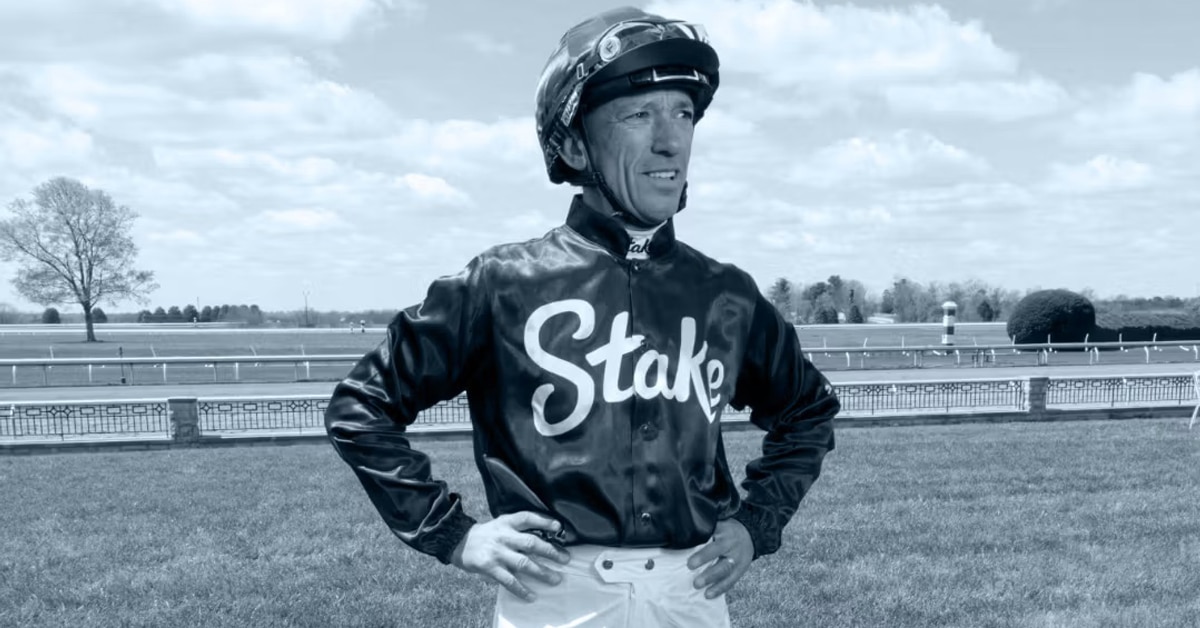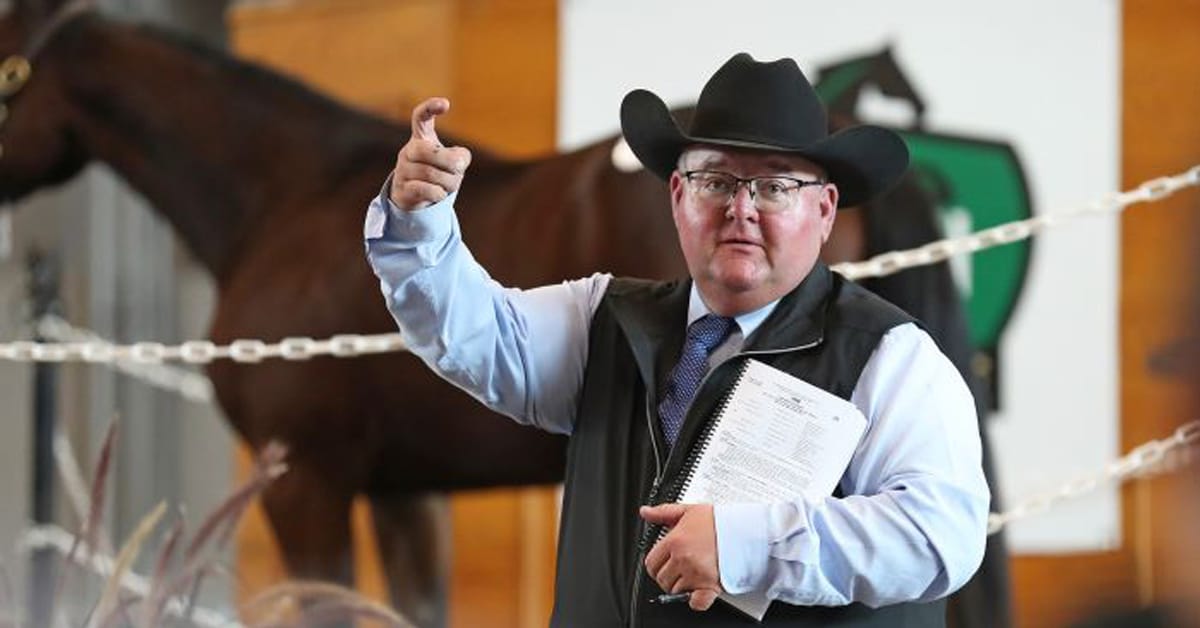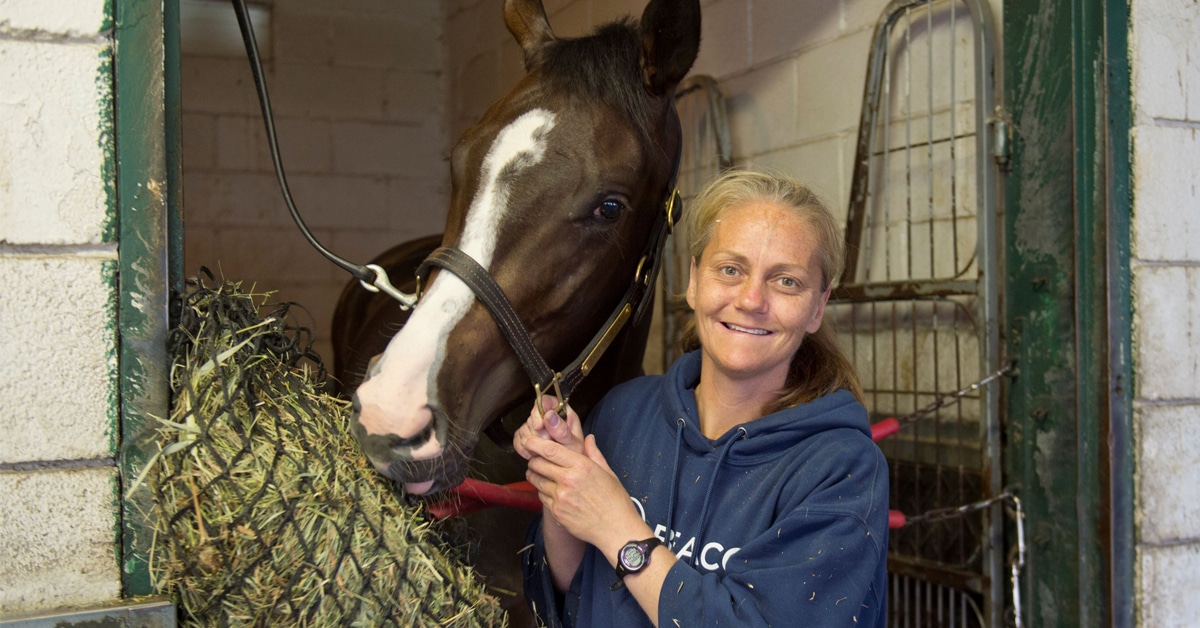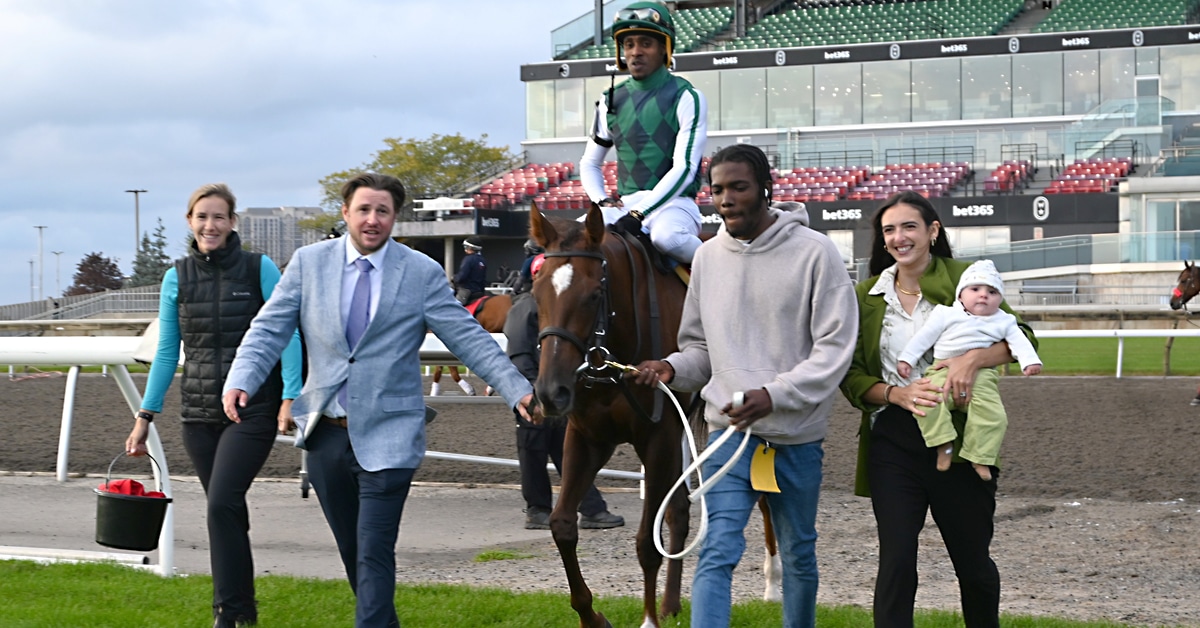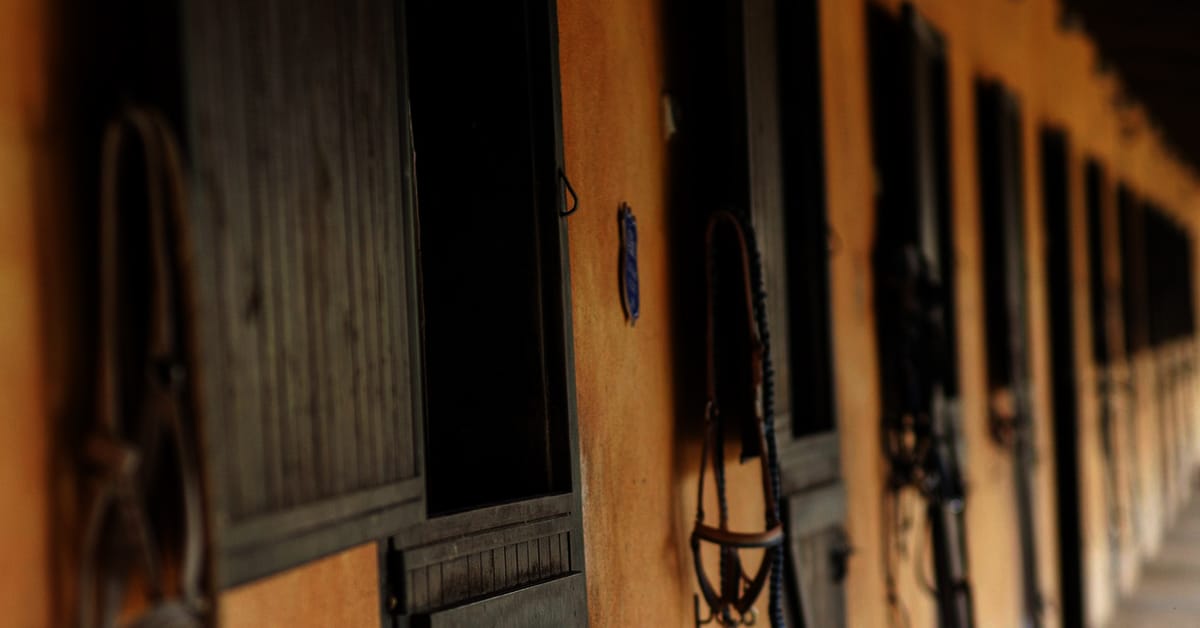Organizations and individuals devoted to the never-ending task of finding loving homes and second jobs for race horses are thankfully becoming more prolific across North America. Rehoming is such a win-win situation for the horses and the trainers and owners who are genuinely concerned about their charges’ futures beyond the racetrack.
A new face on the off-the-track adoption scene is Rebecca Forcier, executive director of Wild Hearts Thoroughbred Adoption Society in Princeton, BC. Her shiny new business burst from the gate in August of this year and she hasn’t looked back. There are currently a handful of Thoroughbreds who retired from racing at Hastings in Vancouver this season on the farm who will stay within the rehabbing and retraining program for the next several months before interviews for potential suitable, caring adoptive homes for them will begin.
“We currently only work with Hastings as of this season, but our goal for next season is to get the attention of Emerald Downs in Washington and Century Mile in Alberta so we have owners and trainers from three tracks on our pipeline,” Rebecca explains. “We would like to become the go-to aftercare organization for these three tracks.”
Rebecca’s love of Thoroughbreds grew from going to the races in Victoria, BC, as a youngster with her grandparents, always betting on the “purple horse” ‒ the one whose jock was attired in purple silks. “I was all strategy!” she says with a laugh. “Our family had a farm and horses of various breeds, but I always remember standing at the track, listening to the pounding hooves and being in complete awe of the Thoroughbred with their power, heart and speed.”
Fast forward a couple of decades, when her own daughter got bitten by the horse bug. Rebecca knew the horse to satisfy that craving would have to be a Thoroughbred. “I searched far and wide and came across New Stride Thoroughbred Adoption Society in Langley, BC, and so began the laying of the foundation for Wild Hearts. I became fast friends with Carmen Kramer, program coordinator at New Stride, and as the years have passed and they are quite often at capacity, she has mentored me into opening up our similarly set up non-profit organization.

OTTBs require quiet, patient and conscientious handling to help them transition from the high-octane life they are used to. (photo courtesy Rebecca Forcier)
“We work closely with track owners and trainers to rehabilitate, retrain, and rehome retiring Thoroughbreds to approved and well-matched adoptive homes. We also provide ongoing support and follow-up to ensure all horses continue to be in good care.”
She admits that Thoroughbred ownership may not be for everyone, and patience and empathy in handling the newbies is essential. Her first OTTB was a mare named Mia Belize, a BC-bred by Cape Canaveral out of Aubergine who was a handful, to say the least. “She tested me. I cried. I wanted to give up. I felt discouraged. I switched up everything I had learned about horses growing up because much of the traditional stuff just wasn’t working. She was going to retrain me whether I liked it or not.”
She continues, “MeMe helped me find a new path and we have copy-and-pasted this with all of the Thoroughbreds we personally own, and also the horses we currently have in the program. Fast forward to today and we can pop either of our kids on her and any other of the retired racehorses and they will happily trot along on a loose rein.”

Son Mason pitches in to help the new arrivals feel at home. (photo courtesy Rebecca Forcier)
Wild Hearts has become an all-hands-on-deck project for the Forciers. “We are a family of Thoroughbred lovers,” says Rebecca, who currently has seven OTTBs on the property. “Our 10- and 12-year-old kids Savannah and Mason play a huge role in the retraining process. All of our own personal horses are retired from Hastings racetrack and are now relaxed, wonderful, safe trail and riding partners.” She points to the farm’s Instagram account, where people can get a peek into their day-to-day operations.
She believes the experience with MeMe was the catalyst that saw Wild Hearts come to fruition. “Being a part of MeMe’s happily-ever-after fuelled the desire to ensure more retiring Thoroughbreds are set up for success after their racing days. Bringing awareness and support in terms of how to retrain and handle these incredible horses is also a big part of our mission.”
Rebecca fully understands how retired racehorses can find themselves in dire situations in the wrong hands. “They can be tough to handle. While many people are patient, many might not be. This begins the negative downturn; if they are ‘behaving badly’ they get punished, behave worse, become dangerous, and before long there are very few positive outcomes left.”
To ensure the best futures for the horses in their program, Wild Hearts strives to always be honest and forthcoming about any known limitations and will not adopt a horse out to a home that has expectations beyond a given horse’s best interests and abilities. To that end, they employ a horse levels system to establish the best match between adopter and horse. It includes updated assessments of each horse including its personality, quirks, ground manners, behaviour under saddle, any known maintenance requirements, potential career suitability, and so on.
Rebecca hopes that as Wild Hearts grows, so will public awareness that the racing industry does not see the equine athletes strictly as business resources. “We would like to be featured in the track pamphlets as a program which benefits the horses, and in turn gives the track positive media showcasing their care for the horses ‘after the wire.'”
The Latest
